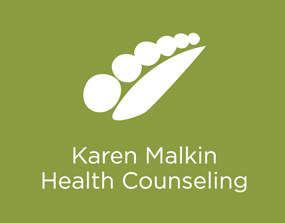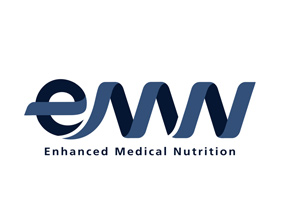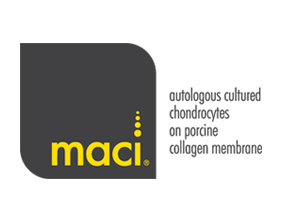Where does your food come from If you haven’t thought about it before, you might want to reconsider. How your food is grown, harvested, processed, and brought to market can have a direct impact on nutritional value, taste, your health, and the health of the planet. So, yeah, it’s a pretty big deal.
The overuse of chemicals, like herbicides and pesticides, along with other industrial farming methods, is harmful to your health and the environment. And, when food is transported over long distances before reaching its intended market, it not only loses flavor but also nutritional value.
Here how to know where your food comes from and why it’s more important now than ever before.
-
Sustainable Agriculture is Crucial for the Future of Our Planet
Our agricultural system has become highly industrialized to maintain a level of production that simply isn’t sustainable. Conventional agriculture requires the application of endless amounts of water and chemicals like pesticides, herbicides, and fertilizers to their crops every season to maintain such high intensity.
And the problems don’t end there. Studies show that global food production needs to expand by at least 50% in the next thirty years to meet the needs of the worlds growing population. To reach that level of production, we would need to grow food on much of our already dwindling forests and wildlands. It would have a devastating effect on our planet.
Our soil quality and the nutritional value of our food are already suffering due to overuse of the land and our natural resources. The runoff of agricultural chemicals is causing harm to aquatic animals, wildlife, and native plants.
So, as a consumer, how can you make a difference By learning where your food comes from! That way, you can choose to support ethical farmers who use sustainable agricultural practices. Start by purchasing only organic produce grown without chemicals, but don’t stop there.
Make a point of purchasing from forward-thinking farmers who grow using sustainable practices, like indoor vertical farming systems and hydroponics. These methods may be the answer to our food sustainability problems by eliminating the need for chemical herbicides and pesticides, minimizing resource use, and maximizing efficiency and production.
Being selective about where you invest your dollars allows you to make a difference by showing support for modern farmers who are breaking away from conventional, industrialized agriculture.
-
Buying Local is Important
When you buy food that was grown by farmers right in your local area, you are supporting a local farmer instead of a large corporation. This is incredibly important for adding jobs to your area and helping those farmers thrive so that they can continue to serve you and your community. No matter what you are shopping for, buy local whenever possible.
-
Eliminate the Gap Between the Farmer and the Consumer
The gap between the farmer and the consumer has grown astronomically in recent decades. Most consumers don’t realize that everything from the produce to the fresh cut flowers in their local grocery store often comes from across the country, and sometimes even across the world.
When you make a point of learning where your food comes from and how it was grown, you can decide between food that was grown by local farmers using sustainable methods or food that was grown in a faraway place using questionable practices that might not be good for you or the planet.
-
Reduce Your Carbon Footprint
Locally grown food usually travels about 20 to 30 miles during its journey to your plate, while conventionally grown produce travels as much as 2,000 miles. When you buy locally, you are taking a huge step in reducing your carbon footprint.
And, it doesn’t end there. Purchasing produce from your local farmer means less waste in the landfill because the food didn’t have to be packaged to protect it during shipping.
In fact, when you shop with local farmers, you can reduce your carbon footprint even further by supporting the ones who opt for compostable or recyclable packaging or even skip packaging altogether. That way you are not part of the worlds ever-growing problem with plastic.
-
Build a Healthy Relationship with Food
Buying your food at your local farmers market or directly from a local farmer, rather than at a chain grocery store, gives you greater respect and appreciation for your food. This connection builds a healthier relationship with your food, as well.
Knowing how your eggs and meat were raised, how your produce was grown, and how it was all harvested, processed, and brought to market can make a huge difference. It turns eating into a mindful experience instead of a mindless distraction.
-
Know What You are Putting Into Your Body
We all know that prepackaged, processed food is laden with unhealthy trans fats, sugar, sodium, and preservatives. It comes with all sorts of chemicals and unhealthy ingredients that you don’t want to feed yourself or your family.
Unfortunately, many people don’t realize that the so-called unprocessed food at their grocery store has probably been treated with an assortment of chemicals as well. And it’s not just the chemicals that were used during the growing process either. Conventional produce is treated with a host of chemicals to make it last longer, look prettier, and prevent it from sprouting.
Not only that, but food that doesn’t travel hundreds or thousands of miles to get to your grocery store will be much fresher. That means it will be more nutritious and taste better, too.
Buying organic, fresh food that was grown locally and preparing it yourself is the only way to know what you are really putting into your body. And thats what it really means to eat a clean diet.
Wrapping It Up
Clearly, knowing where your food comes from provides a host of benefits for you and the environment. If you are a health-conscious individual who is going out of your way to eat a clean diet, the last thing you want to do is waste all your hard work by eating fruits and veggies that are full of chemicals and lacking in nutrition. Being selective about how you spend your grocery budget is a huge step toward a healthier you and a healthier planet.
Click here for full podcast playlist.













